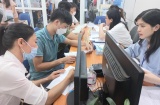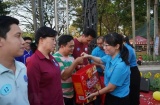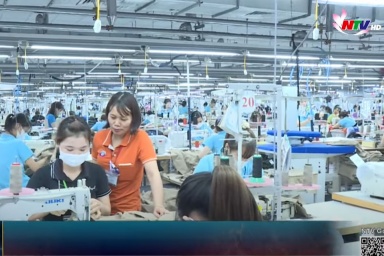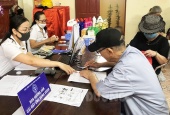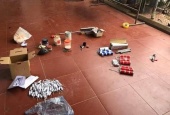Piloting the production of biochar in Intergenerational Self-Help Clubs
(LDXH) The use of biochar in agriculture is recommended by scientists and is becoming more and more popular. Biochar is considered as black gold in agriculture, has many useful effects in preventing erosion and improving soil, improving crop productivity. The production of biochar for use in agricultural activities is especially useful for the elderly because it is not a costly investment, easy to do but brings practical effects.
Recognizing this, within the framework of the project VIE070 project “Supporting Disadvantaged Older People by Replicating Intergenerational Self Help Club Model in Vietnam", with the technical support of the HelpAge organization International in Vietnam (HAI), some Intergenerational Self Help Club (ISHC) in Hanoi have piloted a model of biochar production. As part of this activity, HAI's staff went to ISHCs to organize training sessions on biochar methods, as well as to practice some simple methods and useful with pilot clubs.
The biochar methods introduced by HAI do not require investment in expensive equipment or complicated technology. Biochar can be produced from simple and readily available biomass such as wood, bamboo, rice husks, corn stalks, dried duckweed, organic waste ... using simple tools such as steel drums, or just digging cone pits.
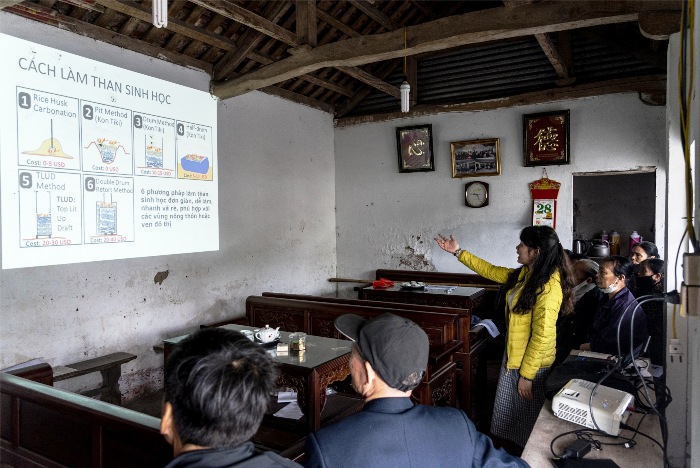
Intergenerational Self Help Club in Thuy Ung Street, Phung town, Hanoi
Biochar, when used to improve the soil, can be stored in the soil for hundreds of years, providing a much longer-lasting effect than other organic fertilizers. The soil after being renovated with biochar will have higher fertility, better water retention, and the ability to stimulate natural growth without much chemical fertilization. Biochar can also be added to animal feed, allowing animals to grow faster, eliminating toxins, and also reducing greenhouse gas emissions.
In addition to its uses in agriculture, biochar also has many practical applications in life such as used to filter domestic water, eliminate bad odors, use as fuel less polluting, or use as raw materials in several manufacturing industries. Biochar has very good detoxification properties, for example, just soaking vegetables and fruits in water with a little biochar for 10 to 30 minutes can eliminate all excess pesticides. Another example is abdominal pain caused by food poisoning where one can swallow a biochar pill to detox safely.
Currently, according to the scientists' calculations, each person emits 5 tons of carbon dioxide per year on average, with total world emissions of 40 billion tons per year. This is one of the main causes of accelerating global warming, causing negative climate changes. The production of biochar is also arguably the most economical and efficient method of capturing carbon in the air today, hundreds of times stronger than the actions of cutting emissions per person such as restrict the use of personal means of transport or actively participate in recycling or reuse. It is estimated that industrial decarbonization could cost as much as 400$ per ton, while the cost of decarbonization by producing biochar is as low as 20 USD per ton. Clearly, biochar production is a cost-effective measure that makes a very positive contribution to slowing climate change, thereby minimizing negative impacts from storms. floods, natural disasters, and other extreme weather events.
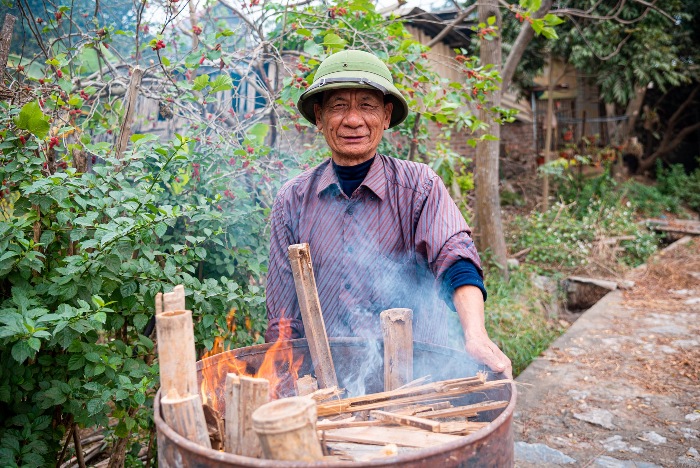
With such many useful aspects, biochar production is a suitable activity to complement the income-generating activities models that the club members have been instructed and implemented through the activities of the ISHCs. Sharing with HAI’s staff, Ms. Nguyen Thi Tien, chairwoman of the ISHC of Xuan Lai village, said: “Making biochar is a very easy and fast process. And it does not cost much. Biochar has been proven to be a great help in improving soil fertility and is also beneficial for the environment. I hope that HAI, the Association of the Elderly, and the authorities at all levels replicate this model nationwide so that we the older people can reap the benefit.
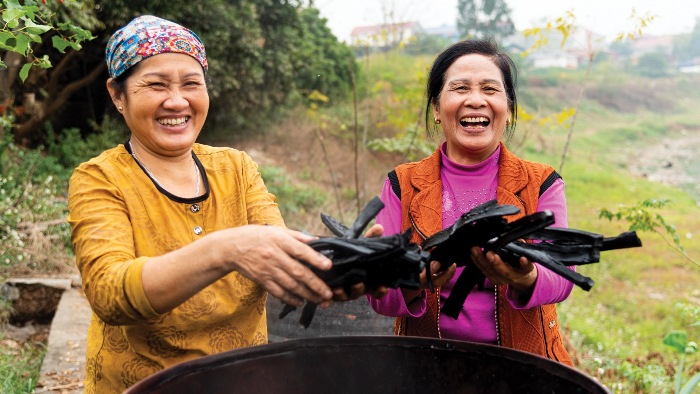
is delighted to have harvested high quality biochar
The pilot process shows that biochar production is a very suitable activity to be integrated into the ISHC model and in the community, especially in rural communities. The popularization of the biochar production will help "turn garbage into gold", transform what is considered waste into something with many practical uses, and will also reduce spontaneous trash burning activities, contributing to the fight against climate change. At the same time, biochar production is also a good way to promote the participation of older people in simple production activities, improving the quality of life for older people themselves and the community. If biochar production is replicated to more than 3,500 LTH TGN clubs that have been established and clubs will be established in the coming years under the Club replication scheme approved by the Prime Minister at Decision 1336-QD-TTg, dated August 31, 2020, surely clubs will make a significant contribution to efforts of dealing with the current climate crises.
Khanh Linh





